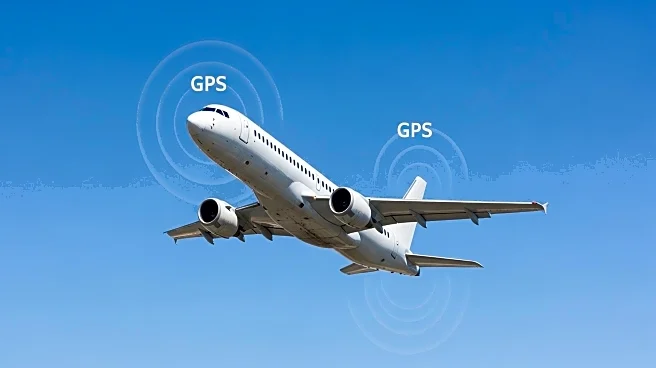What's Happening?
European Commission President Ursula von der Leyen's plane experienced GPS jamming while flying to Plovdiv, Bulgaria, marking the latest in a series of incidents attributed to Russian electronic interference. Since Russia's invasion of Ukraine in 2022, there have been nearly 80 such incidents affecting navigation systems for planes, ships, and drones across Europe, particularly in the Baltic Sea region. Russian authorities claim the jamming is defensive, aimed at protecting key cities and military infrastructure from Ukrainian drone attacks. However, Baltic officials report increased interference causing navigation failures far from Russia's borders. The jamming incident involving von der Leyen's plane is part of a broader pattern of electronic warfare tactics employed by Russia.
Why It's Important?
The GPS jamming incidents highlight the growing threat of electronic warfare tactics used by Russia, which could have significant implications for European security and aviation safety. The disruption of navigation systems poses risks to civilian and military aircraft, potentially leading to accidents or conflicts. The Baltic nations, which have been most affected, are taking measures to mitigate these risks, including banning drone flights near Russian borders. The incidents underscore the need for enhanced defense and readiness among European countries to counter such threats. The situation also raises concerns about the potential for escalation and the broader impact on international relations and security in the region.
What's Next?
European countries are likely to increase their investment in defense and readiness to counter electronic interference threats. NATO and the EU may collaborate more closely to address these security challenges, potentially leading to new policies or initiatives aimed at protecting navigation systems. The ongoing electronic warfare tactics by Russia could prompt further diplomatic tensions and discussions on international regulations regarding electronic interference. Stakeholders, including political leaders and defense agencies, will need to assess the situation and develop strategies to prevent future incidents and ensure the safety of air travel and communications.
Beyond the Headlines
The use of electronic warfare tactics by Russia raises ethical and legal questions about the impact on civilian infrastructure and the potential for unintended consequences. The incidents could lead to long-term shifts in how countries approach electronic warfare and cybersecurity, prompting changes in international law and cooperation. The situation also highlights the vulnerability of modern navigation systems and the need for technological advancements to safeguard against interference.











